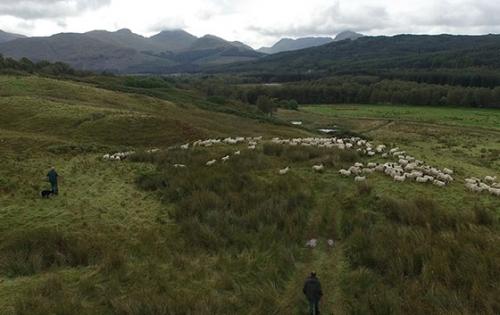
The relationship between our land and people is crucial, particularly at a time when demographic, social, economic and environmental change is being experienced in rural areas across Scotland; from rural towns and their hinterlands, to coastal areas and islands. SEFARI research focuses on the resilience and wellbeing of Scotland’s rural communities and provides vital support and a wider view for other SEFARI work on environment, land-based industries, food and health. SEFARI research is designed to help people living in and using the rural landscape; it helps identify policies which can enhance community wellbeing and resilience; and it considers the role of empowerment, local participation and democracy.
Sector Contact

Case Studies
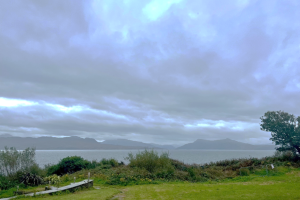
In this blog Professor Lorna Dawson, Gateway knowledge broker for Environment and Soil, shares some insights after visiting Skye as part of a community workshop IN August 2025.
SEFARI Gateway provides bespoke access to the RESAS portfolio’s research expertise and analysis to ensure scientific evidence helps inform the health, wealth and well-being of Scotland’s people. Institutes involved in SEFARI include JHI, SRUC, Rowett, Moredun, BioSS and RBGE. Researchers from James Hutton Institute and SRUC were part of the working team at the event.
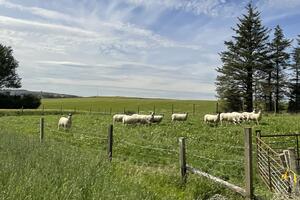
SRUC, Craibstone and Tulloch, 8 July 2025
In this blog Professor Lorna Dawson, Gateway knowledge broker for Environment and Soil, shares some insights after attending a meeting on the field trial information underpinning sustainable food and feed production through a sound scientific understanding. The meeting encompassed a series of brilliant talks outlining the science behind the stories, followed by a tour of several field experiments in the Aberdeenshire area.

Recent shifts toward protectionist trade policies—most notably from the United States—are reshaping the global trading system in ways that extend beyond traditional economic concerns. Protectionism refers to when countries introduce measures such as tariffs, quotas, or subsidies to limit imports and support their domestic industries. For the UK, navigating this uncertainty comes at the post-Brexit period, where trade resilience, food system stability, and climate commitments are increasingly intertwined. In this blog, we explore how these shifts—both escalating tensions and cautious diplomatic steps—are shaping UK trade relationships, food and agricultural markets, climate ambitions, and the future of multilateral cooperation. Drawing from current data, recent events and policy updates, we examine what these developments mean for UK policymakers, businesses, and the wider global economy.
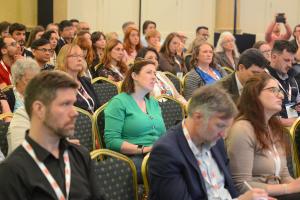
The British Society of Animal Science is a charitable organization, which has been in existence for over 80 years! It is also the principal learned body supporting animal science in the UK. BSAS works ‘to advance the sector, improve the understanding of all aspects of animal science and ensure research and knowledge transfer has a practical and beneficial application’. Its annual scientific conference regularly attracts delegates from across the world, this year was no exception, with approximately 400 delegates from 23 countries. The conference was held in sunny Galway on the stunning Wild Atlantic Way in the west of Ireland, from 8th-10th April.
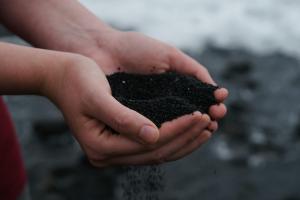
Soil erosion remains one of the most pressing agricultural issues worldwide. It is still happening - the intensive way we farm is destroying and degrading the very basis of our entire food system, soil. In this opinion piece, Professor Lorna Dawson, SEFARI’s Knowledge Exchange Lead for Environment, discusses the issues and solutions to keep our soil healthy and productive.
Soil as a precious resource (Image by Seth Cottle, Unsplash)
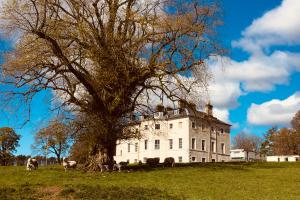
Antimicrobial resistance (AMR) is a growing concern not only in hospitals but also in our farms and fields. When pathogenic bacteria acquire AMR, antimicrobials previously used to treat them are no longer effective causing a greater burden of disease. The use of antimicrobials in livestock can lead to increasing emergence of AMR which can spread more widely in the environment when farmyard manure or slurry is used as organic fertiliser to improve soil health and productivity in grasslands.
This blog delves into a five-year project (we’re at the halfway point!), aimed at exploring how different fertilisation practices, including biosolids from sewage sludge, influence the dynamics of AMR in pasture ecosystems. The research investigates whether sewage sludge pellets (biosolids) might offer a safer alternative to traditional animal-derived fertilisers.
Farm animals near a human dwelling (Credit: Nuno Silva)

To mark this year’s International Day of Rural Women, our colleague Ana Vuin from Rural Policy Centre at SRUC, offers her insight on the role of women in agriculture and rural communities, challenges of representation, health and wellbeing, as well as opportunities to foster inclusive and fair rural society.
Title image: Hands together (Photo by Hannah Busing, Unsplash)
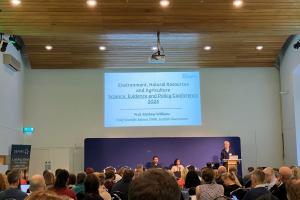
Climate Change Adaptation is one of the key items on the policy agenda in Scotland, and this was the main focus at this year’s ENRA Science, Evidence and Policy conference.
Organised by the Scottish Government’s Rural & Environmental Science and Analytical Services (RESAS) and held at Edinburgh’s Dynamic Earth, the conference brought together researchers and policymakers from across the rural and environment research and policy landscape in Scotland and showcased Scottish Government (RESAS) funded research evidence that is supporting climate change adaptation.
Title Image: Opening keynote by Prof Mathew Williams (Photo by Alöna Roitershtein)
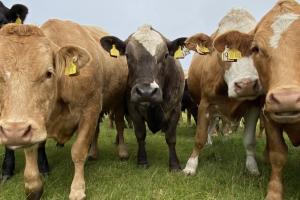
SEFARI Gateway are a silver sponsor at this year’s A3 Scotland conference - a not-for-profit two-day conference for the Animal Health, Agritech and Aquaculture (AAA) sectors, attracting attendees from all over the world to Inverness, to participate in plenaries, breakouts, investor panel and start up pitching, and sessions on funding, international showcase, skills and emerging solutions in AI, robotics, and sensors.
Our work across the Scottish Government’s Environment, Natural Resources and Agriculture (ENRA) Strategic Research Portfolio makes a substantial contribution to the A3 sector in Scotland. Read on to find out more about our A3 related work.
Cattle in Orkney (Photo by Alöna Roitershtein)
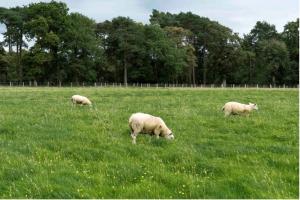
A significant challenge for sheep farmers has always been gut worm infections that damage the digestive systems of lambs, resulting in poor growth and reduced economic and environmental sustainability. The worms have developed resistance to the anthelmintic drugs used to control them, necessitating alternative control strategies. One such strategy is grazing management. Therefore, SEFARI Researchers are investigating if what, and how, sheep graze could influence worm control strategies.
Sheep grazing in one of the set-stocked paddocks (Credit: Andrew Kelloe)
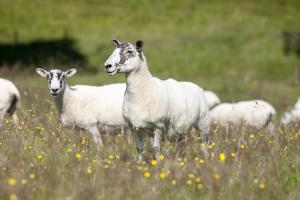
Ticks and tick-borne diseases (TBDs) are of growing concern in Scotland and the UK due to factors like climate change, wildlife distribution shifts, and changes in land use. This has led to increased tick burden in livestock and Tick-borne diseases (TBDs) outbreaks appearing in new areas, posing threats to livestock and public health.
Current control methods like acaricides (pesticides to kill ticks and mites) face challenges, such as treatment failures and environmental harm. Effective control requires a collaborative approach involving all stakeholders, fostering comprehension of conflicting matters and leading to the formation of a new cross-sectoral network. In response to this pressing issue, we have organised a SEFARI Gateway funded Innovative Knowledge Exchange workshop to identify best practice and produce industry guidelines for ticks and TBDs control.
Title image: Sheep in long grass (Credit: Moredun Research Institute)
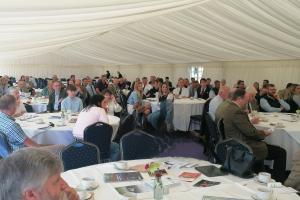
Supported by SEFARI GAteway, the Royal Bank of Scotland, the RSA, and in particular the RSA Fellows Borders Network and the RSA Fellows Rural and Environmental Issues network Scotland and NFU Mutual, over 100 guests attended the Business breakfast from 8:30 until 10:30, in the Members Marquee, organised and welcomed by RSA fellow Mrs Ann Packard, FRSA, HonFRIAS.
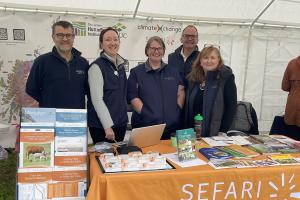
During this year’s GO Falkland gathering, in the foothills of the mighty East Lomond Hill on the beautiful Falkland estate, an enthusiastic collective of farmers, growers, artists, scientists and policymakers came together to discuss what Regenerative Farming, Forestry, Land Use and Food means for them. During the event, we shared experiences and insight to collaboratively work towards the shared goals of the sustainable future.
SEFARI and SEFARI Gateway were there to contribute to and support these conversations over the two days. Find out more in this blog.
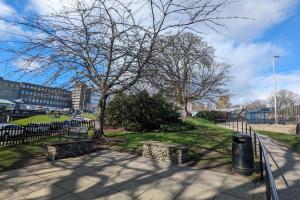
Luis Loria-Rebolledo, Dwayne Boyers and Verity Watson from the University of Aberdeen’s Health Economics Research Unit were recently awarded a joint SEFARI Gateway and PHS Fellowship. The Fellowship team are seeking to build on the National Health Service (NHS) Scotland Climate Emergency and Sustainability Strategy and previous research commissioned by Public Health Scotland (PHS) and NatureScot.
In this blog, the team describe the background to this project and how they will attempt to answer the following questions:
How are NHS outdoor spaces used?
What is their health and wellbeing value to different users?
What is the value to NHS staff?
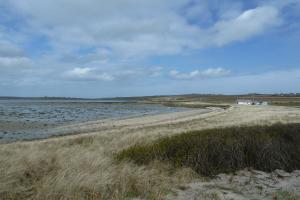
In December 2022, Mairi Gougeon, (then) Cabinet Secretary for Rural Affairs and Islands and Kate Forbes (then) Cabinet Secretary for Finance and the Economy, committed to apply a rural lens to projects funded under NSET. - The Scottish Government’s National Strategy for Economic Transformation (NSET), which was published earlier the same year. Applying this rural lens should ensure that all activities that are part of NSET take account of the specific circumstances of Scotland’s rural communities.
In response to this announcement, SEFARI colleague Dr Jane Atterton (SRUC) was successfully awarded SEFARI Gateway funding to set up a Specialist Advisory Group (SAG). The group’s aim was to provide advice to rural policy officials in the Scottish on designing rural lens guidance for their policy colleagues across government.

What can young people's social connections tell us about their migration patterns in rural Scotland?
Youth out-migration in Scotland’s rural communities remains a significant concern, and increasing levels of youth retention, in-migration, and return are seen as key to longer-term population sustainability. While youth out-migration in rural places is often linked to limited employment and housing opportunities and constraints of services in rural places, evidence also shows that experiences of belonging, and family connections are important in shaping young people's migration patterns.
Our new Gateway funded project therefore, seeks to generate novel insights into the level of social networks among young people (16 – 24) as community-based assets supporting their economic, social, and health needs and their impact on shaping migration patterns of young people in rural Scotland.
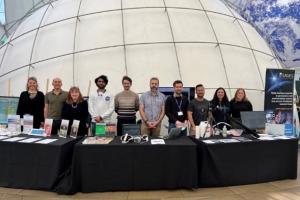
Over 600 school children aged 11 to 18 years old from 9 council areas in Scotland attended the ‘Your Plant-Your Future’ event at Our Dynamic Earth, Edinburgh on 5th March 2024. The aim of the event was to engage young people, raise awareness of the many environmental issues facing Scotland today, and inspire them to consider a future in a STEM related career- in an attempt to address the skills gap that currently exists. Pupils explored the amazing opportunities that can be unlocked through STEM pathways at school and beyond.
In this blog, hear more about the event which bought together >20 partners across research, industry, further and higher education to showcase exhibits and inspire the next generation of scientists through enthusiastic discussion and interactive displays.
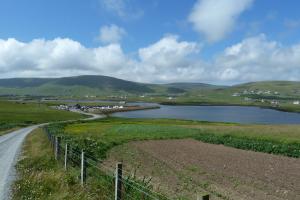
Here at SEFARI, we strive to make the world more sustainable, greener, and equal and we’ve got an amazing team of people who make this possible. As its International Women’s Day, we’ve decided to highlight some of the work done by our female researchers and/or our research that is addressing key issues affecting women.
From supporting rural women in the Arctic in making low carbon transitions, to closing the gender pay gaps, to sector-leading research - we cover it all in this blog post.

Overconsumption and high levels of resource use are challenges contributing significantly to the climate and biodiversity crises. Scotland is currently only 1.3% circular, meaning that over 98% of the products consumed in Scotland come from newly extracted materials, and only a small proportion of these materials are ‘cycled back’ into use in the economy. In other words, most of what we buy, use or consume in Scotland is not reused again within Scotland, despite the huge potential to do so.
In this blog we give a brief overview of what the ‘Circular Economy’ is and how it aims to address the issue of consumption and waste in a world where resources are finite. This blog also introduces the ‘Circular Economy: people, behaviours and skills’ project, which is part of the current RESAS Strategic Research Programme (2022-2027).
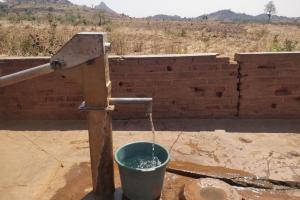
Serious gaming is a growing field in which games are used to provide a fun and educational method of science communication. Gaming offers opportunities in communicating challenging and complex issues to stakeholders and communities to improve land management practices.
Through a SEFARI Gateway funded Innovative Knowledge Exchange project, we are developing a game highlighting the challenges in land and water-management in Malawi. In addition, we are also investigating the opportunities on how we might use what we’ve learnt to develop a similar game relevant to the challenges more applicable to the Scottish context.
Pagination
Blog

The return of retaliatory tariffs